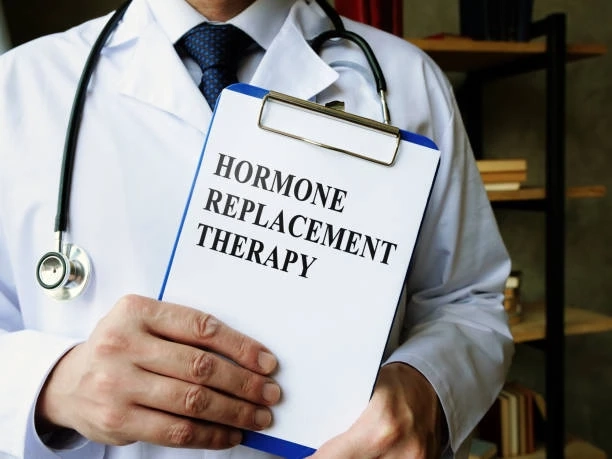Hormone Replacement Therapy is gaining popularity as a potential form of treatment for men and women who suffer from hormone-related physical or mental conditions such as diabetes, osteoporosis, or depression. What are the pros and cons of this type of treatment?
Introduction
Hormone replacement therapy (HRT) is a treatment for women who are experiencing symptoms associated with menopause, such as hot flashes and mood swings. While the majority of women find HRT to be an effective way to alleviate these symptoms, there are a small percentage of women who experience adverse side effects from the therapy. In this article, we will discuss the pros and cons of HRT, and offer a different perspective on the treatment.
We all know that HRT is a treatment that has been proven to be effective in relieving symptoms of menopause, but there are still some people who believe that it is dangerous. Some people argue that HRT can increase your risk of developing cancer, heart disease, or other diseases. Others claim that HRT can cause infertility or other negative side effects. So how does this medication actually work?
HRT works by restoring the natural balance of hormones in the body. When you go through menopause, your body produces less estrogen and progesterone. This can lead to unpleasant symptoms like hot flashes, insomnia, and mood swings. HRT helps to bring your hormone levels back to their normal levels by replacing lost
Facts about Hormone Replacement therapy
Hormone replacement therapy (HRT) is an umbrella term that refers to a variety of treatments that use hormones to manage symptoms of menopause and other conditions.
One of the most common types of HRT is estrogen replacement therapy (ERT). ERT is used to relieve symptoms of menopause, such as hot flashes, night sweats, anxiety, mood swings, and depression. Other forms of HRT include testosterone replacement therapy (TRT), which is used to treat low testosterone levels caused by aging or disease.
There are many benefits to using HRT. For example, HRT can help relieve symptoms of menopause and improve overall quality of life. It can also help reduce the risk of developing osteoporosis and other chronic diseases.
However, there are also risks associated with using HRT. For example, HRT can increase the risk of developing cancer. Additionally, HRT may also increase the risk of developing heart disease and stroke.
It is important to weigh the risks and benefits of using HRT before deciding whether or not to take it. If you are considering using HRT, be sure to speak with your doctor first.
Benefits of HRT
Hormone replacement therapy (HRT) has been around for over fifty years and is still being used today. There are many benefits to HRT, including reducing symptoms of menopause, improving quality of life, and even reducing the risk of cancer. Here are five reasons why you should consider HRT if you are experiencing symptoms related to menopause:
HRT can help reduce symptoms of menopause. Symptoms of menopause can vary from woman to woman, but typically include hot flashes, mood swings, insomnia, and decreased libido. HRT can help relieve these symptoms in a majority of women. HRT can improve quality of life during the menopausal period. Many women report that their quality of life improves significantly when they start taking HRT. Improved quality of life can include feeling more comfortable in your own skin, improved mood, and decreased anxiety levels. HRT can reduce the risk of developing certain types of cancer. Women who take HRT have a reduced risk of developing breast cancer and ovarian cancer. Studies have also shown that HRT reduces the risk of uterine cancer and cervical cancer. HRT can decrease the riskAlternatives to HRT
There are many different alternatives to hormone replacement therapy (HRT), which can be a more natural and affordable option for those looking for an alternative to the side effects of HRT.
Some of the most popular alternatives to HRT include bio-identical hormones, lifestyle changes, and natural hormone supplements. Bioidentical hormones are identical to the hormones produced by the body naturally. These hormones are often prescribed to women who are experiencing hormone deficiency or who want to avoid some of the negative side effects associated with conventional HRT.
Lifestyle changes can also help relieve symptoms related to menopause. Examples of these lifestyle changes include avoiding caffeine and alcohol, eating a balanced diet, getting exercise, and reducing stress levels. Additionally, taking natural hormone supplements can provide relief from menopausal symptoms such as hot flashes and mood swings.
Regardless of which alternative you choose, make sure to discuss it with your doctor first to ensure that it is appropriate for you and provides the desired level of relief.
Conclusion
If you are considering hormone replacement therapy (HRT), there is a lot of information out there. This article provides an overview of HRT from a different perspective, looking at the benefits and risks of this type of treatment. While HRT has many benefits, it also comes with some risks, so be sure to talk to your doctor about what might be best for you.


